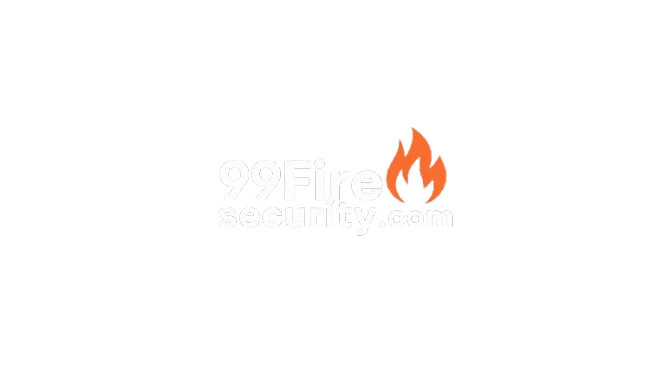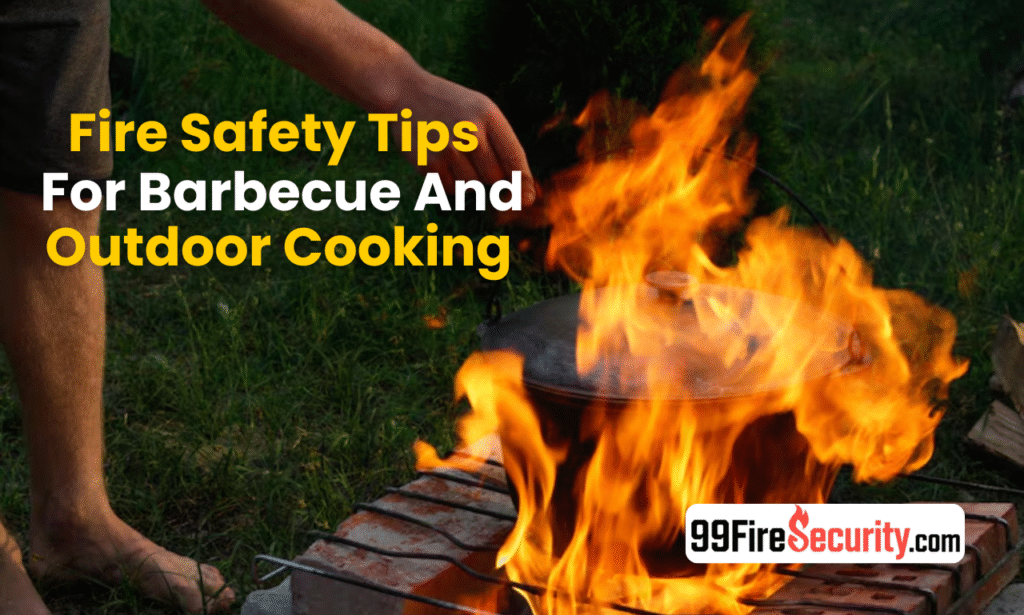Everyone loves to enjoy barbecue. Outdoor cooking just got more fun. But it’s fun, there’s a risk of fire. Even a small accidental fire can cause damage. Therefore it is important to pay attention to ach grill or stove has its own rules. The source of the fire must be contained. The outdoor area should be open and protected. Houses or trees should have gates. Enjoy barbecue but safely. In this article you will find great fire prevention tips.
Keep Grill Area Clean
Every grill or cooker must be cleaned. Oil or grease can become a source of fire. Old food or fatty stick no. Check the level before each use. There is no buildup on the burner or plate. The gas grill pipe needs to be checked. Block or leak to fire. The exterior setup is clean and smoke is low. A clean surface balances the heat. If the area is clear the fire is under control.
Pick Open Safe Spot
The setup should be in an open area. There should be gates through walls or fences. There are no trees or dry grass around. Never place equipment in a roof niche. Fire needs air space. Avoiding smoke reduces the risk. The wind can become strong enough to spread flames. Choose a stable and safe surface. Concrete or bricks are the best foundation. Sloping ground is dangerous. A safe arrangement makes fire control easier.

Carry Fire Tools Always
Tools should be ready in case of a vehicle fire. A fire blanket or sand is of little use. Do not use bottled water. Water is the problem in oil fires. A fire extinguisher is the best. A hose or wet towel is also useful. Gloves and tongs help control the fire. Tools should be clean and strong. Fireproof equipment can handle heat
Gas cylinder testing is essential
Improper equipment can cause serious hazards. Leakage or damage is dangerous. Flexible pipes should not be soft or cracked. All connections must be tight and clean. Avoid inhaling any unusual odors before use. Leakage can be checked with soapy water. Operation should remain steady and consistent. If there’s unusual color or behavior, the equipment may have an issue. Always start the system safely after it is turned on. Use the correct activation point. Keep all equipment upright and away from direct sunlight.
Use Charcoal Safely
A charcoal grill has more spark. Light the door with a match or lighter. Add more lighter fluid. Let’s fire once. Charcoal keeps the heat stable. Discard the ash and coal after it cools down. Use wet sand when disposing. Store the charcoal bag in a cool dry place. Sparks can cook wood or grass. Use a fire tight cover. Flames do not get high.
Keep Kids and Pets Away
Block off a 3-foot area of the grill. Children are considered fire toys. Keep pets on a leash. Heat is harmful to them. Barking can cause the grill to fall. His move was unexpected. Monitor if they pass. The smell of food attracts them. An adult should always be nearby. Everyone should understand fire zone rules.
Wear Safe Fitted Clothing
Loose sleeves can catch fire. Use cotton or fireproof cloth. Gloves and an apron help. If the hair is long, keep it tied. Shoes should be closed and tight. If you slip on the grill you can fall. Please remove the accessories. Firefit clothing reduces risk.
Grill after cooking
Shutting off the gas is very important. Do not touch the charcoal until it cools down. Fire is completely off to be safe. Keep closed with a grill cover. Ashes are cool to remove. Check the hose and pipe. Wash and dry the tools. Should be ready for next use. The storage area should be clean.

Creating an emergency plan
A safety plan should be ready. If there is an enclosed space, install an alarm system. Keep the emergency number handy. Everyone cares about getting out . Consider the family as a point of safety. Safety drills should be done occasionally. A source of water should be nearby. It is important to remain calm. Panic often leads to problems.
Check Weather Together
Wind or rain can make a fire dangerous. Avoid using equipment during high winds. Sparks can travel long distances. Do not cook outdoors in the rain. Slippery ground is dangerous. Check heat and humidity levels. Fire spreads with wind. Clear weather makes outdoor cooking safer.
Conclusion
Barbecue fun should be safe. Don’t neglect fire safety. Every girl has her own rules. Keep children and pets out of doors. Choose a clean and open space. Have tools and supplies ready. Handle equipment and fuel with care. Damage can be avoided by following fire tips. All cooking should be safe and fun.
FAQs
Q1: What to do if there is an oil fire?
A: To begin with, do not freeze. Never toss water on an oil fire as water spreads the fire forward. Near the front cover of the barbecue to restrain the oxygen supply. Utilize a fire quencher or prepare pop. Wear defensive gloves and call somebody for help.
Q2: How distant ought the flame broil be from the house?
A: Continuously keep the flame broil at slightest 10 feet absent from the house, carport, overhang or any other secured region. The chance of fire is diminished when the barbecue is in the open. Utilizing a barbecue beneath a roof or overhang can be greatly dangerous.
Q3: Is it secure to flame broil in blustery weather?
A: Grills are a genuine fire risk in tall winds. Wind can cause flares to get out of control and light dry clears out or coals such as furniture. It’s best to hold up for a calmer climate or set up the flame broil in a ventilated area.
Q4: Can the flame broil be cleared out unattended whereas cooking?
A: Never take off the barbecue unattended. Remain near to the flame broil whereas cooking so you can react to any crises. Keep other pets absent from the barbecue. If you have no more oil cleared out on the barbecue you can turn off the fire.


